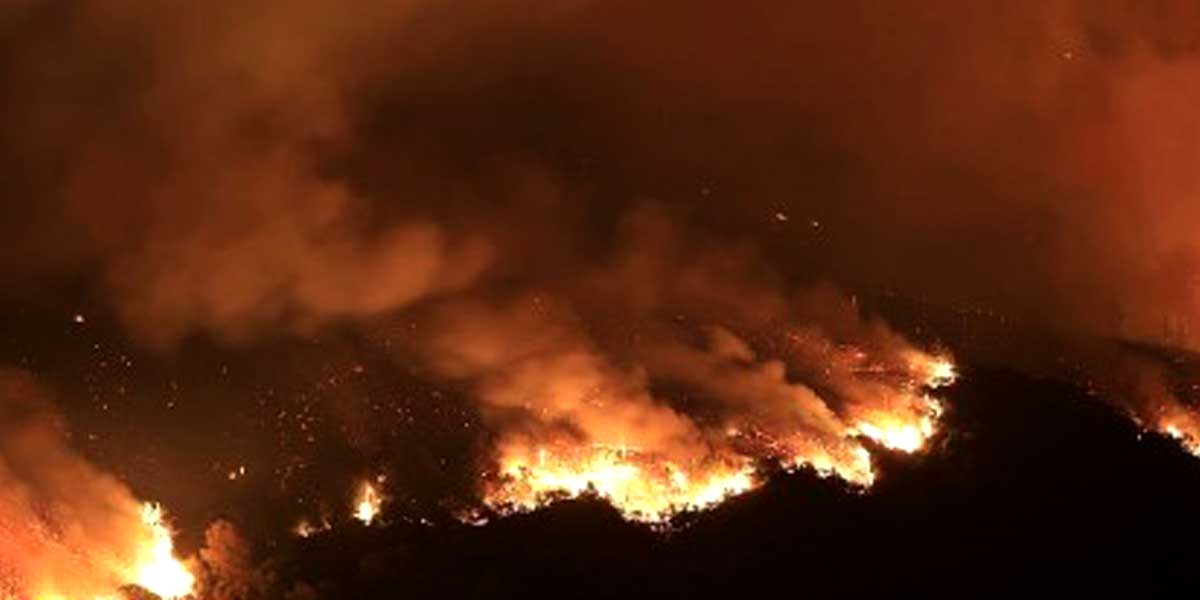
ANKARA – The rise of extreme heat and forest fires will likely worsen air quality and put human health in danger over the course of this century, according to a report on Wednesday.
The link between air pollution and climate change will bring an additional “climate penalty” for hundreds of millions of people around the world, according to the annual Air Quality and Climate Bulletin report by the World Meteorological Organization (WMO).
“An anticipated rise in the frequency, intensity and duration of heat waves and an associated increase in wildfires this century is likely to worsen air quality, harming human health and ecosystems,” it said.
Evaluating the close links between climate change and air quality while focusing on increasing heat waves and wildfires, the report highlighted that climate change could exacerbate surface ozone pollution, leading to “detrimental health impacts” for millions.
“As the globe warms, wildfires and associated air pollution are expected to increase, even under a low emissions scenario. In addition to human health impacts, this will also affect ecosystems as air pollutants settle from the atmosphere to Earth’s surface,” said Petteri Taalas, the WMO secretary-general.
Global efforts toward carbon neutrality
Explaining the “climate penalty” as the climate change amplification effect on ground-level ozone production which negatively impacts the air people breathe, the report pointed out that the regions with the strongest projected climate penalty, mainly in Asia, are home to roughly one-quarter of the world’s population.
The WMO warned that air pollution reached an unprecedented level in some regions last year.
“If greenhouse gas emissions remain high, such that global temperatures rise by 3°C from preindustrial levels by the second half of the 21st century, surface ozone levels are expected to increase across heavily polluted areas, particularly in Asia,” underlined the report.
It also underlined that heat waves, which are becoming increasingly common due to climate change, are likely to continue leading to a degradation in air quality.
To prevent further destruction that would be caused by air pollution, the report highlighted the global efforts on carbon neutrality and limiting emissions.
“This is because efforts to mitigate climate change by eliminating the burning of fossil fuels (carbon-based) will also eliminate most human-caused emissions of ozone precursor gases,” it added. (Anadolu)




















